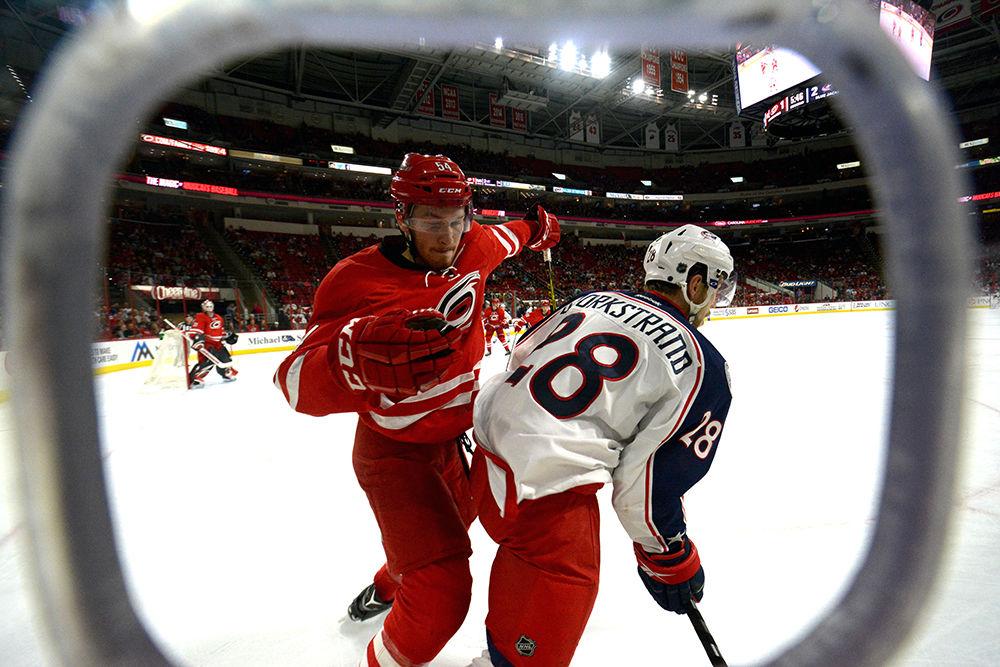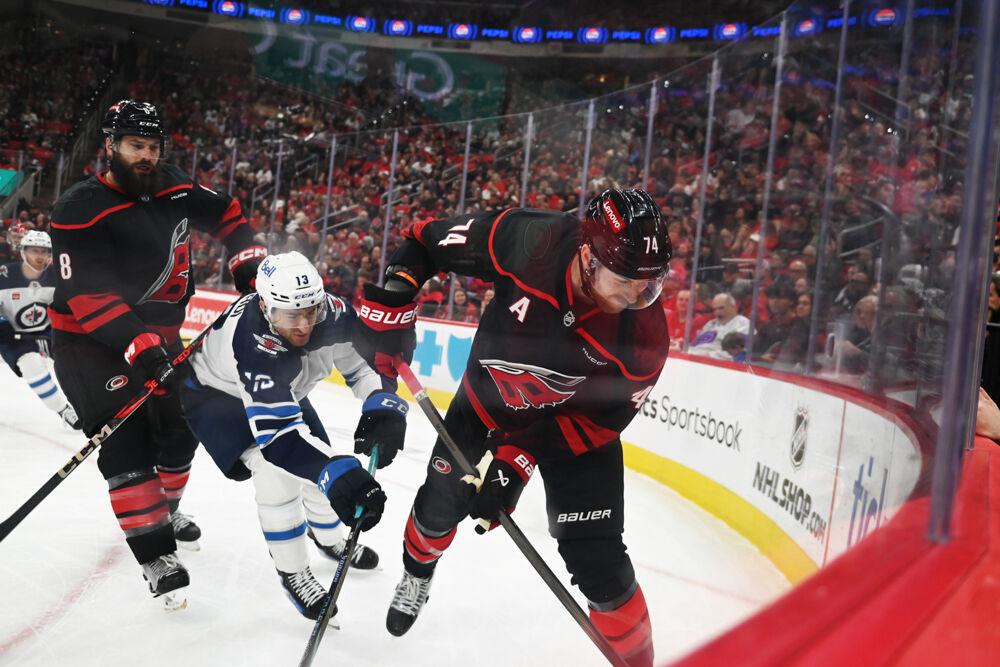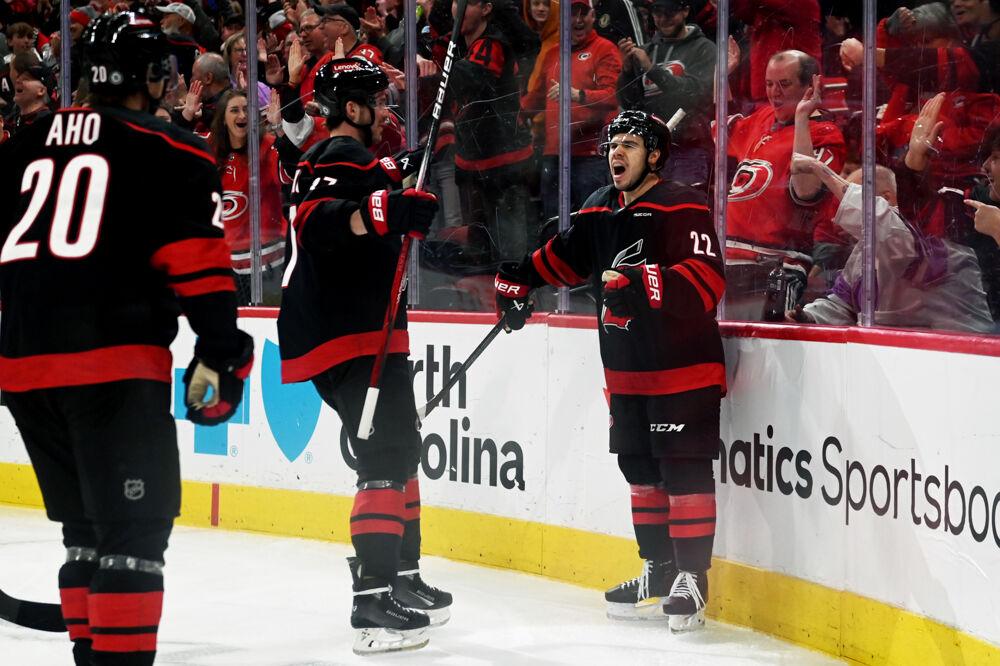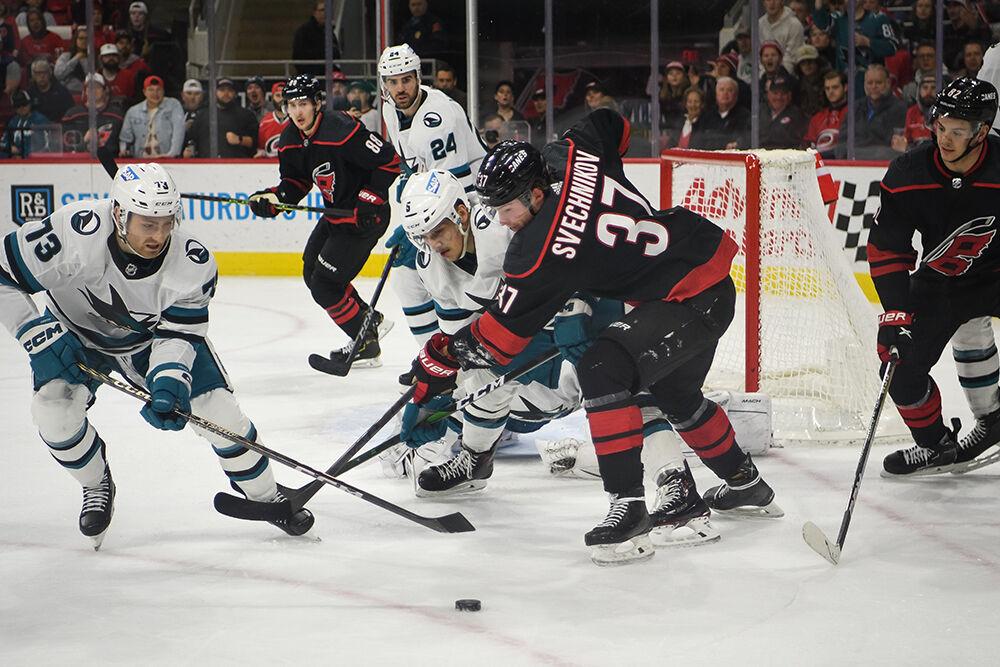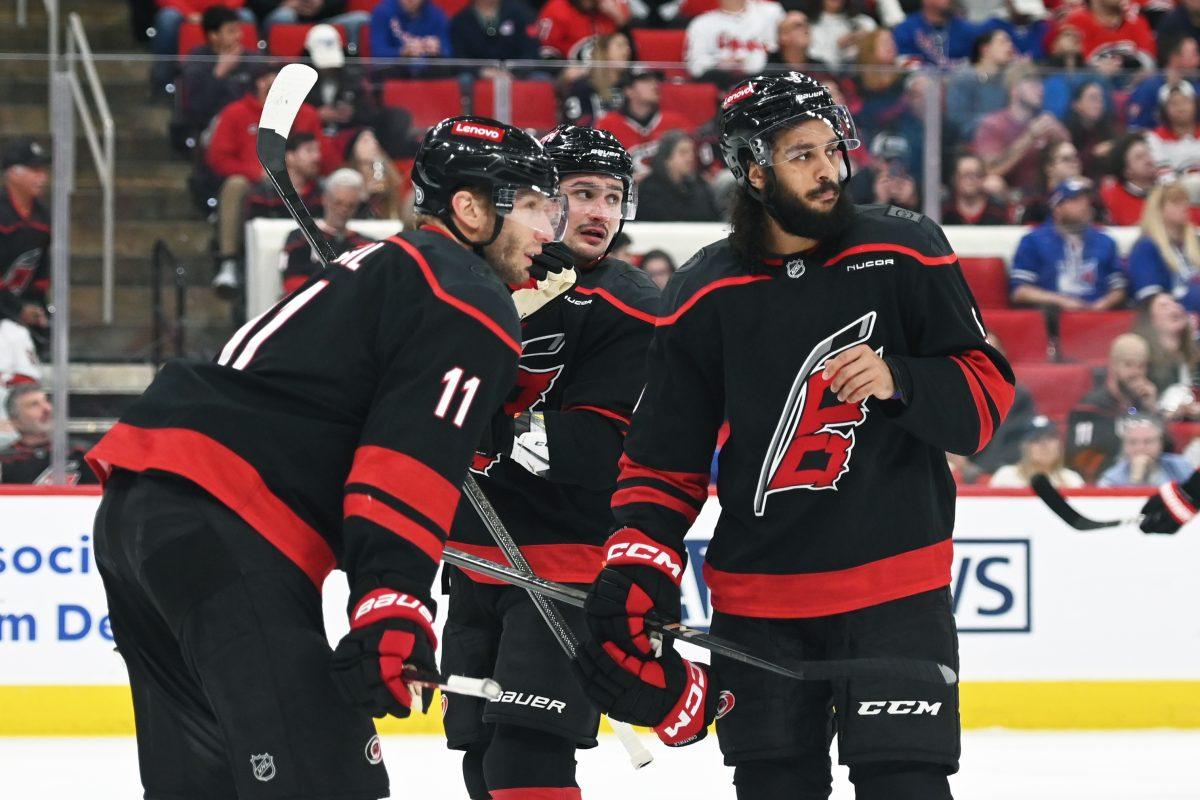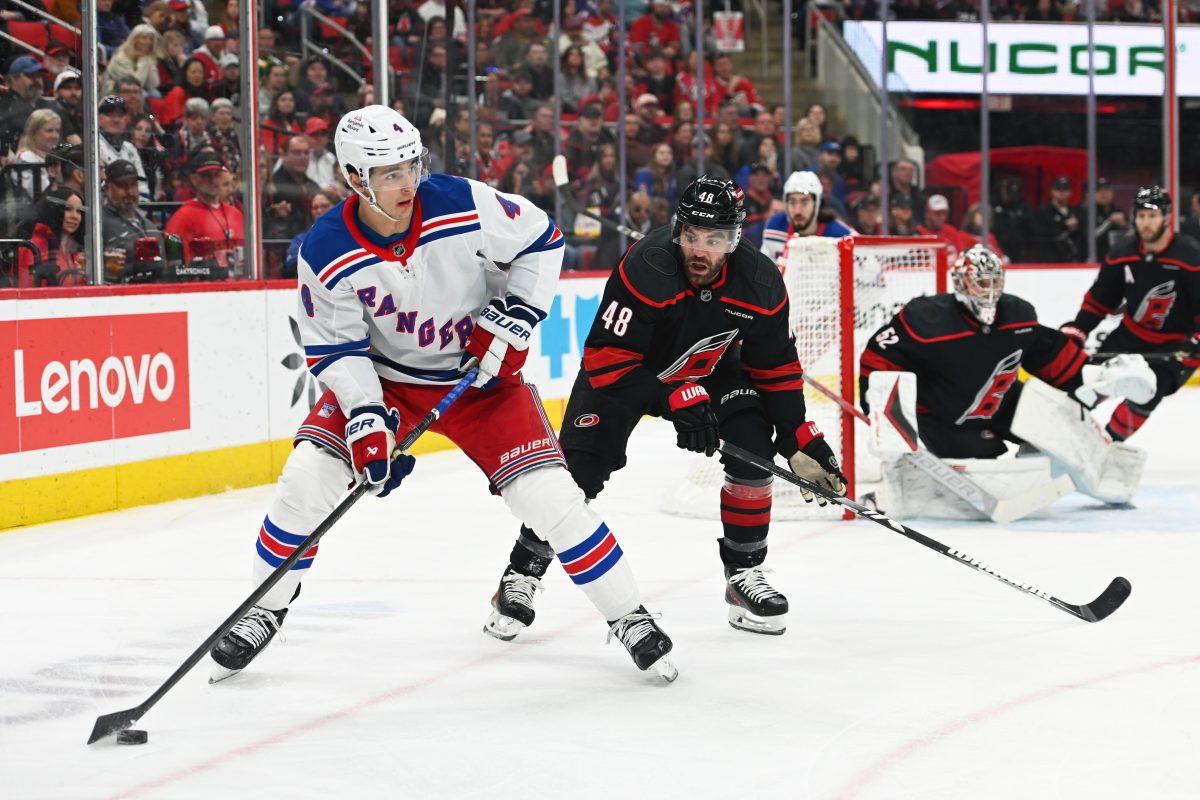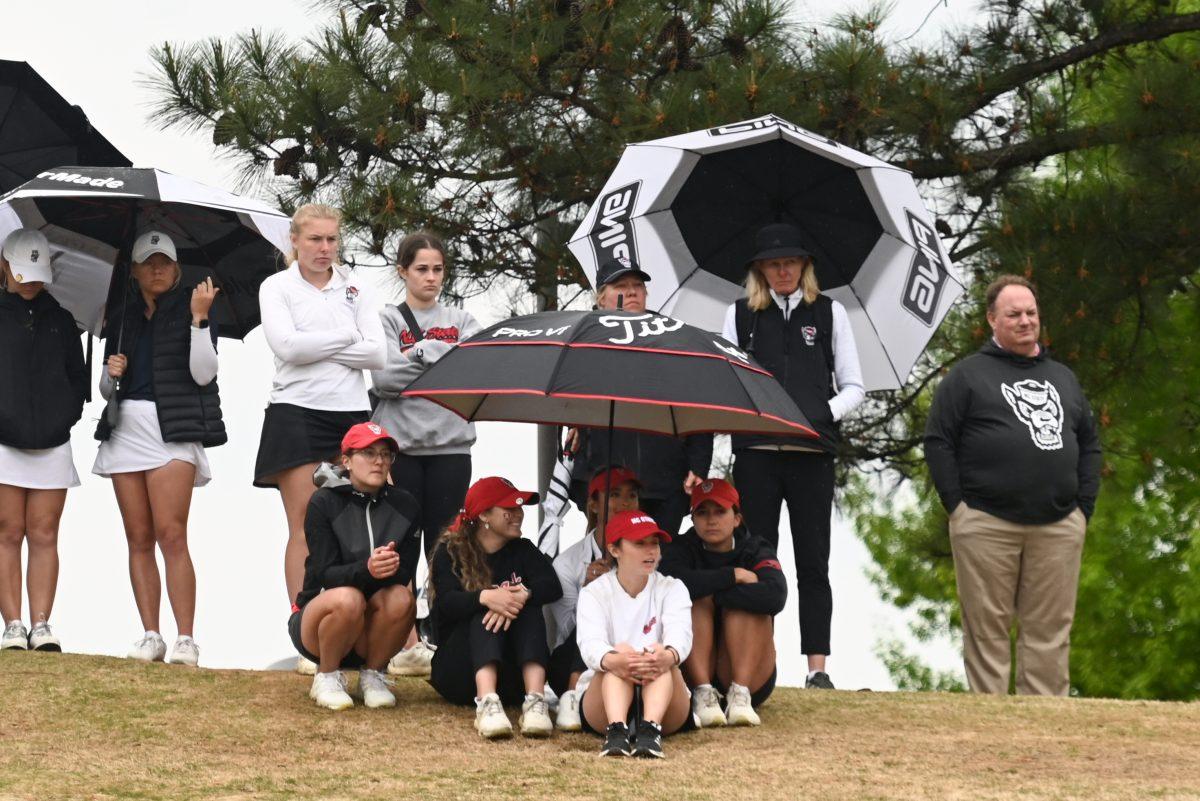Carolina Hurricanes general manager Ron Francis spent much of the 2017 offseason making moves to help the team in the short term, ensuring that its NHL-leading playoff drought ends in 2018.
He also made two calculated signings for the future. He locked in the team’s top pairing on defense through 2024, signing Jaccob Slavin to a seven-year extension worth $5.3 million per season, and his partner, Brett Pesce, to a six-year extension at $4.025 million per season.
Signing the duo now, before their contracts would have expired and they would have been restricted free agents following the 2017-18 season, is a smart move for a number of reasons.
The first and most obvious of those reasons is that Slavin and Pesce are good at what they do. After breaking in and surprising the league as rookies in 2015-16, the duo of American college hockey products emerged as a top-notch shutdown pair last season.
Slavin and Pesce were regularly matched against an opponent’s top players, and thrived doing it. They tied with a team single-season best plus-minus rating of +23. Plus minus is usually more of a team stat and is rarely effective in evaluating individual players, but this is one of those rare cases.
For Slavin and Pesce to be so far in the green given their roles on a team with a minus goal differential is very impressive. The Canes outscored their opponents by 23 goals at even strength with the duo on the ice, despite them playing big minutes and facing down a steady diet of Sidney Crosby, Alex Ovechkin, Patrick Kane and John Tavares types in every game.
They have some growing to do offensively, though Slavin did show a lot of improvement in that regard over the team’s final month, to finish the season with a career-high five goals and 34 points in 82 games, including his first-career hat trick. Pesce has, by his own admission, been working on his offensive game over the summer, particularly his shot.
There’s no reason to believe Slavin and Pesce have hit their ceilings, either. With Slavin at 23 years of age and Pesce 22, both are still a few years from hitting their prime and should have plenty more to give.
So, given what Slavin and Pesce bring to the table now, those salaries are, at the very least, fair prices for both, and could end up looking like ridiculous bargains by the time the deals expire.
Which brings us to the next point. Had Francis waited to sign Pesce and Slavin until after next season with the expiration of their entry-level deals, he could have been facing more expensive new contracts for both of them. It’s certainly possible both take another big step, particularly with offensive breakouts, this upcoming season, and then Francis would have, at the very least been looking at paying each one million more per season than the extensions ended up being.
By hedging his bets and getting the deals done now, the Canes have two talented, cost-controlled defensemen under contract for the long term. That is very important in the salary-cap world, and especially important given the Hurricanes’ upcoming contract negotiations in the next several years.
Next summer, Swedish playmaker Elias Lindholm and defenseman Noah Hanifin, both fifth-overall draft picks in 2013 and 2015, respectively, will be restricted free agents. If both build on what they did in the second half of last season next year, they’ll be looking at big raises.
Slavin and Pesce’s deals could be particularly important in Hanifin’s negotiation. The trio broke in together as rookies, but so far, Slavin and Pesce have outperformed Hanifin. Barring a big breakout for the Boston College product this year (which is certainly possible), Francis can reasonably hope to sign Hanifin for at or around Slavin and Pesce’s deal. Newly-acquired defenseman Trevor van Riemsdyk will also be an RFA in 2018.
The big negotiations don’t stop there. In 2019, leading scorer Jeff Skinner will be an unrestricted free agent, and Finnish forward Sebastiano Aho will be an RFA. Those deals won’t be cheap, particularly if Aho continues to build on last year’s impressive rookie campaign. Finally, defenseman Justin Faulk, the team’s top puck mover and power-play quarterback, will be an UFA in 2020.
Given all these upcoming contract talks, then, it’s even more important that Francis was able to lock Slavin and Pesce in at reasonable deals, leaving as much money on the table for these other future extensions as possible.
Building a team brimming with young talent as the Hurricanes have does come with the pitfall of having to pay the young guns as they mature and develop. If Francis’ work on the Slavin and Pesce deals is any indication, the Canes’ future contract negotiations with the rest of their young core are in good hands.


